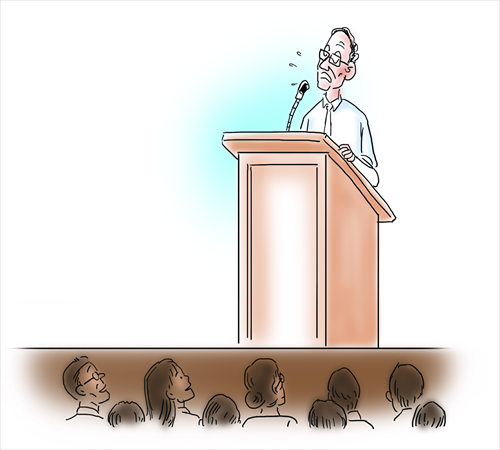‘Fake’ Rothschild exposes our insecurities

Illustration: Liu Rui/GT
The Rothschild family has been a bulwark of European finance for over two centuries, but the surname is a double-edged sword. As a Jewish family, the Rothschild's have long been the target of conspiracy theorists and anti-semites. And, it seems, even just being called Rothschild can make you famous - or infamous - even if you have no actual connection to the banking family.
The new beneficiary of this blessed surname is Oliver Rothschild, a British consultant and board member of some small companies and charities. He was given an effusive welcome at China's prestigious Tsinghua University in early February, that is for being a "Rothschild."
In a press release on the university's website about his meeting with Qiu Yong, President of Tsinghua University, this Rothschild was described as a member of the "ninth generation of Rothschilds," and "one of the successors of the Rothschild family" who is a principal manager of the family's mammoth fortunes in the UK.
The gushing bulletin later prompted inquiries by the Chinese media, which exposed that Oliver Rothschild is not a member of the famous banking family. The real Rothschild family told the Daily Telegraph in the UK that he was not a descendent of Mayer Amschel Rothschild, the founder of the family, and had no connection to their businesses. Finally, Tsinghua had to recant the press release. Yang Bin, vice president of the university, said to media recently that there should have been more background checks.
The excuse of "more background checks" seems insinuating that the esteemed university was unfortunately tricked by a con man. The rhetoric is also shared by many Chinese media, calling Oliver Rothschild a "fake Rothschild."
However, Oliver Rothschild is a real Rothschild. He just does not share the same bloodline with these Rothschild bankers. Neither his personal website nor his Linkedin profile has shown him as a member of the well-known family. After being told the controversy in an interview with the Financial Times, he said he was quite "shocked," and reiterated that he has never had the intention of passing as one of the famous Rothschilds. Various other groups, from the London College of Fashion to the University of Essex, are listed on Rothschild's CV but have disavowed any connection to him.
The meeting with the president of Tsinghua University is only one of many between Oliver Rothschild and Chinese entrepreneurs and senior government officials in the past two years. Although his agenda in China was mostly about charities and small and mid-sized business development, he certainly seemed to be trading on the Rothschild's name. At a conference, he delivered a speech entitled in Chinese "A secret passed down through 12 generations." In a response to inquiries about this, he said he doesn't speak Chinese and it was "certain friends" who arranged these meetings, so he could "quite possibly" be misrepresented.
Whether Oliver Rothschild is a swindler or his friends misinformed the Chinese audience about his identity on purpose, his surname was the key contributing factor to the farce. However, the incident has betrayed a tinge of an ingrained social ambition in China, a longing for international endorsement, especially from the developed world, as an indicator of being something.
Since China reopened its gates to the outside world more than three decades ago, the country has vowed to gear itself toward the "international community," which is actually a euphemism for the developed world. The attitude of learning from the best, when China was backward in almost all walks of life, should be encouraged as a sign of progression and vibrancy. However, decades-long propaganda about how China should work hard and catch up with the developed world has unfortunately made a dent in the Chinese way of thinking. An inferiority complex has taken root in the mind of many Chinese, xenophilia mixed with a worship of everything foreign.
The ethos is reflected in Chinese entrepreneurs recruiting white Europeans as "advisors" who are nothing but ornaments and Chinese parents' obsession with studying overseas regardless of the universities' accreditation. It can be seen as a side effect of China's opening-up, but it should sound a warning alarm to the public, which needs to put more effort into shoring up their confidence and evaluating China's successes or failures on its own terms. When Tsinghua can honestly treat a Rothschild as a reliable partner instead of an adornment, the public can start to shift their mind-set.
The author is a Global Times reporter. liuzhun@globaltimes.com.cn Follow us on Twitter @GTopinion